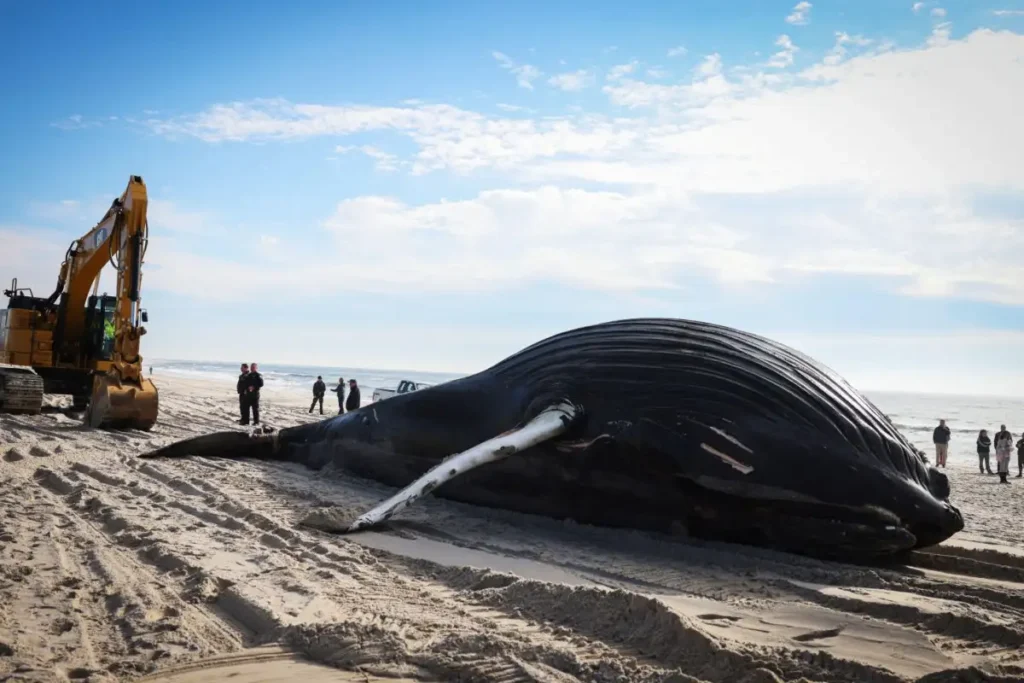Introduction
Beached whales have captured the attention and concern of people around the world. These majestic creatures, often found stranded along shorelines, evoke a mixture of curiosity, empathy, and urgency for their well-being. In this article, we delve into the phenomenon of beached whales, exploring the causes behind these occurrences, the impacts on whale populations, and the conservation efforts aimed at addressing this critical issue.
Understanding Beached Whales
1. What is a Beached Whale?
A beached whale refers to a marine mammal, typically a whale, that becomes stranded or stuck on a beach or shoreline. This phenomenon occurs when a whale, for various reasons, ends up in shallow waters and is unable to return to deeper oceanic habitats without human intervention.
2. Types of Beached Whales
There are two main types of beached whales:
- Live Strandings: Live strandings occur when whales become stranded but are still alive. These situations require immediate response and rescue efforts to safely refloat the stranded individuals.
- Dead Strandings: Dead strandings involve whales that have already perished before or during the beaching event. These cases provide opportunities for scientific examination to determine the cause of death and gather valuable data for research and conservation purposes.
Also read more :
The Complex Trait of a Perfect Heroine: Desire to Possess:
Causes of Beached Whales
1. Natural Factors
Several natural factors contribute to beached whale incidents, including:
- Navigational Errors: Whales rely on Earth’s magnetic fields, underwater sounds, and other cues for navigation. However, environmental changes, such as underwater noise pollution or magnetic field disruptions, can confuse their internal navigation systems, leading to stranding.
- Illness or Injury: Sick or injured whales may become disoriented, weak, or unable to swim effectively, increasing their chances of stranding.
2. Human-Related Factors
Human activities also play a role in beached whale incidents:
- Entanglement in Fishing Gear: Whales may become entangled in fishing nets, lines, or other gear, preventing their normal movement and potentially leading to stranding.
- Underwater Noise Pollution: The increasing presence of underwater noise from shipping, naval activities, and seismic surveys can disorient whales and disrupt their communication, potentially causing them to strand.
- Collisions with Vessels: Whale-ship collisions pose a significant threat. Large vessels can strike whales, causing severe injuries or death and potentially resulting in beaching events.
Impacts of Beached Whales: Whale Strandings
1. Whale Mortality
Beached whales, particularly those involved in dead strandings, represent instances of whale mortality. These events are indicators of potential threats to whale populations, including disease outbreaks, ecosystem imbalances, or human-induced causes.
2. Ecological Significance
Whales play a crucial role in marine ecosystems. Their presence contributes to maintaining biodiversity, nutrient cycling, and the overall health of the oceans. When whales beach and die, it disrupts these ecological processes, impacting the delicate balance of marine ecosystems.
Conservation Efforts: Whale Strandings
1. Stranding Response and Rescue
Stranding response networks, consisting of trained professionals and volunteers, work tirelessly to rescue and rehabilitate live stranded whales. These teams provide immediate care, medical treatment, and facilitate the safe return of stranded individuals back to the ocean whenever possible.
2. Research and Monitoring
Scientific research is fundamental in understanding the causes of beached whales and developing effective conservation strategies. Researchers study stranded whales to determine the cause of stranding, assess health issues, and identify patterns or trends in beaching events.
3. Public Awareness and Education
Raising public awareness about the plight of beached whales is crucial for their conservation. Educational campaigns, public outreach, and community engagement programs aim to inform people about the importance of marine mammal conservation, responsible marine activities, and reporting stranded animals to the appropriate authorities.
Conclusion: Whale Strandings
The occurrence of beached whales represents a complex and multifaceted issue, influenced by natural and human-related factors. Understanding the causes and impacts of beaching events is crucial for implementing effective conservation measures. By enhancing stranding response efforts, conducting research, and raising public awareness, we can work towards protecting these magnificent creatures and ensuring their survival in our oceans.

